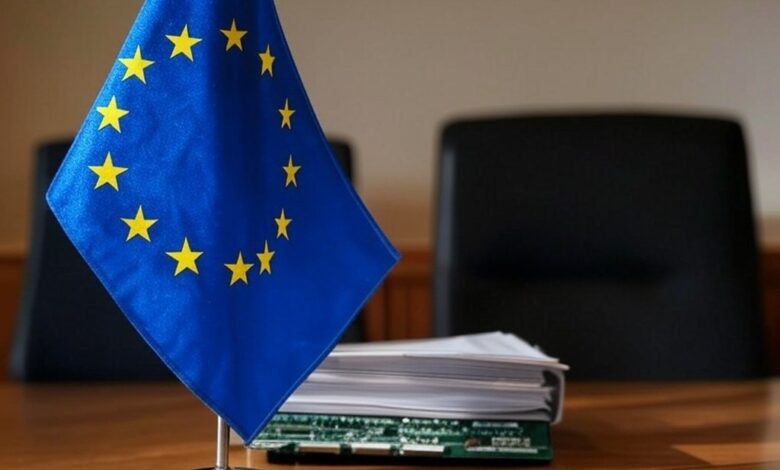EU’s New AI Regulations Come into Effect

New regulations governing the use of artificial intelligence (AI) officially came into effect in the European Union (EU) on Sunday, marking a significant milestone with the implementation of the EU’s Artificial Intelligence Act. This law is designed to balance innovation with safety, placing strict restrictions on the use of AI technologies that exploit human vulnerabilities.
Among the key prohibitions, the law bans AI systems that manipulate unconscious behaviors or track social behavior for public or private purposes, similar to practices observed in China, where AI is used to reward or punish individuals based on their actions.
The European Union acknowledges the vast potential of AI to drive economic growth, innovation, and competitiveness. However, it also warns of the “new risks” that AI can pose to user safety, including physical security and privacy concerns. Reports indicate that certain widely used AI models may present “systemic risks,” prompting the EU to take proactive steps to regulate their use.
One notable provision in the new regulations is the prohibition of biometric classification in public spaces, such as surveillance via cameras. However, law enforcement agencies and security services are granted the ability to use facial recognition technology to track specific crimes, including human trafficking and terrorism.
With the law now in effect, companies developing or using AI systems are required to assess the risks associated with their technologies and implement necessary measures to comply with legal requirements. The aim is not only to protect consumers but also to ensure that AI is used responsibly across the industry. Providers and operators of AI systems must ensure that all personnel involved in the development or use of these systems possess appropriate expertise in the field.
Parallel to these developments, the EU is also experiencing rapid adoption of cryptocurrencies, driven by an evolving regulatory framework aimed at striking a balance between innovation and financial protection. The Markets in Crypto-Assets (MiCA) regulation, which has now entered into force, is designed to create a secure and transparent environment for investors and businesses in the cryptocurrency sector. This legislation provides clear rules for the issuance and trading of digital assets, enhancing investor confidence and facilitating the integration of cryptocurrencies into the traditional financial system.
Several EU member states, including Germany and France, are also working to adopt policies that support the development of financial technology, further boosting the use of digital assets in payments and investments. However, challenges remain in terms of complying with new regulations, combating money laundering, and ensuring consumer protection—issues that could impact the broader adoption of digital currencies across the EU.





